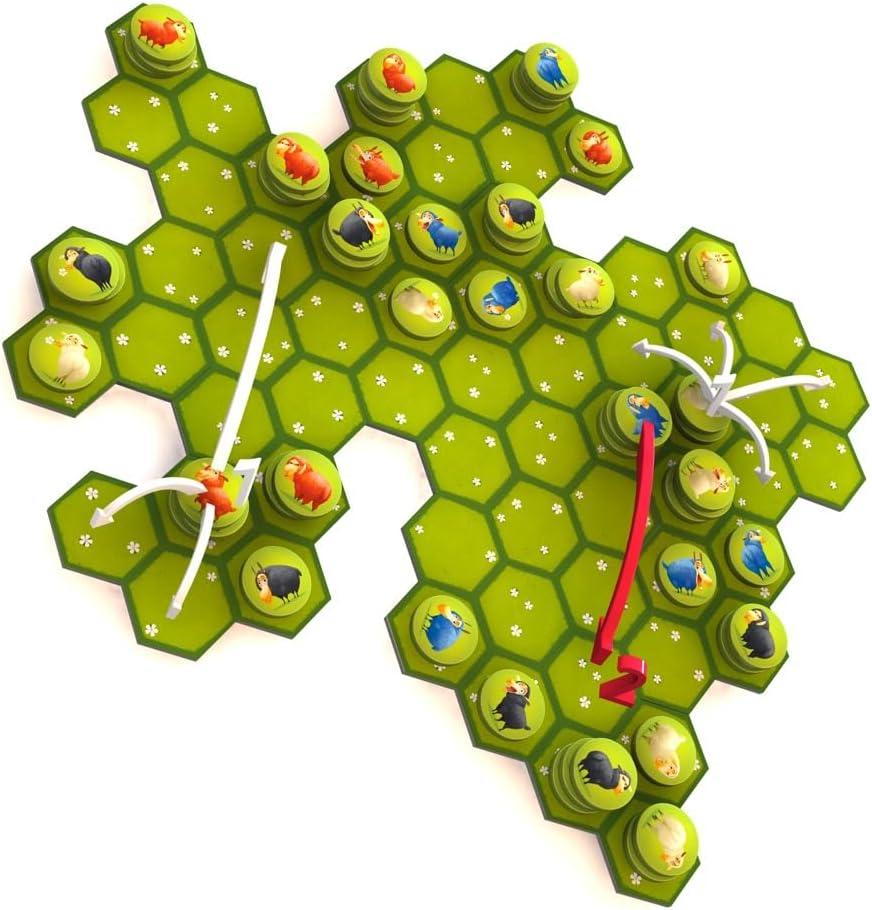Download our FREE e-book:
7 Lies You Believe About Money
No Results Found
The page you requested could not be found. Try refining your search, or use the navigation above to locate the post.
Capital Reserve Strategy
Stop locking your capital in retirement accounts and home equity.
Instead…
Implement the Capital Reserve Strategy with guaranteed, consistent, tax-free returns, high liquidity, no market volatility, creditor protection, and high contribution limits.
Why Battlesheep Is the Perfect Game for Growing Young Strategists

There aren’t many games that check as many boxes for me as Battlesheep. On the surface, it’s a simple board game about fluffy little sheep spreading across a field. But underneath that colorful exterior is a tight, elegant strategy game — one that’s become a cherished part of my family life.
When I think about Battlesheep, I don’t just think about clever moves and tactical grids. I think about sitting around a table with my kids, watching them grow sharper, more confident, and more capable every time we play.
I still remember the first time I played the game. At first glance, it looked lighthearted, almost silly — sheep conquering a pasture one hexagon at a time. But as soon as the board started forming and the movement began, it hit me how important chokepoints were on the battlefield. One wrong placement, one careless division of your flock, and you could cut off your own territory or open the perfect lane for an opponent. That moment — the realization that the board shrinks while possibilities expand — hooked me immediately.
But the truth is, my love for Battlesheep goes beyond the puzzle. The puzzle is great, but the real joy comes from playing with my children. There’s something uniquely satisfying about watching your kids learn strategy in real time — not because you explained it, but because they discovered it. Move after move, game after game, they start to see the board differently. They notice patterns. They anticipate traps. They create traps of their own. They get visibly better, and the game rewards every ounce of attention and creativity they invest.
And then there’s my favorite part: the moment they legitimately outwit me. No pity wins, no “Dad let me win” moments — I mean the moves where they corner me brilliantly, block off half the board, and then look up with that spark in their eyes that says, I did that. I earned that. Watching them experience the satisfaction of victory — that immediate surge of pride and accomplishment — is worth every hexagon of territory I lose.
What makes Battlesheep so special is that it creates these opportunities naturally. It’s competitive, but never hostile. It’s strategic, but still accessible. It’s simple enough for kids to grasp quickly, yet deep enough that adults can’t coast on experience alone. Every match is a clean slate, a new field of possibility, and a chance for someone to surprise everyone else.
For us, the game has become more than a time-killer. It’s a shared experience, a training ground for thinking ahead, adapting, and making the most of limited resources. It’s also a space where my children get to test themselves — against me, against the game, and against their own previous selves.
In a world full of noise and screens, Battlesheep gives us something quieter but richer: a simple board, a handful of movements, and a chance to learn, laugh, and level up together. And for me, that’s the best kind of game.
2025 Tax Return Projection
I understand the stress of not knowing your tax future. My expert process delivers accurate forecasts to guide your tax planning decisions.
Get peace of mind and control over your tax liability with clear insights.
Beware the “average rate of return”.
If a stock drops 50% in a year, what % does it have to go up the next year to get back to even?
That’s right, it has to go up 100%.
What’s the average of -50% and 100%?
That’s right, 25%. Pretty impressive!
What was the ACTUAL return?
$0
Tax Basis Bookkeeping
Pristine Bookkeeping!
Your Tax Preparer Will Love It.
Stay compliant, maximize deductions, and eliminate IRS stress — all with clean, tax-basis financials designed to keep you, your tax preparer, and the IRS happy.
What’s The First Question?
If your first question is “can I afford it?” then probably don’t buy it.
If your first question is “is it worth it?” now we’re talkin’.
Life Insurance Blueprint
Life Insurance.
You Know You Need It.
But how much and what kind?
Answer a few questions and get your FREE personalized Life Insurance Blueprint.
Case Study: Lester, 40 years old, makes $200k a year. $0 retirement, ready to start.
Let me introduce you to my fictional friend Lester.
He’s 40 years old.
Makes $200k a year.
Hasn’t been saving for retirement, but is going to start putting 5% of his salary in a 401k with his employer’s 4% match.
Let’s see what happens…
Term Life Ladder
Term Life Insurance that adapts to your coverage needs over time.
And costs about half as much!
Get A Free Quote Now.
No phone number required!
What Is Evil?
Evil is not defined by what it is, but rather what it isn’t…
Evil is the lack of obedience to the moral law of God as expressed in the Bible.

